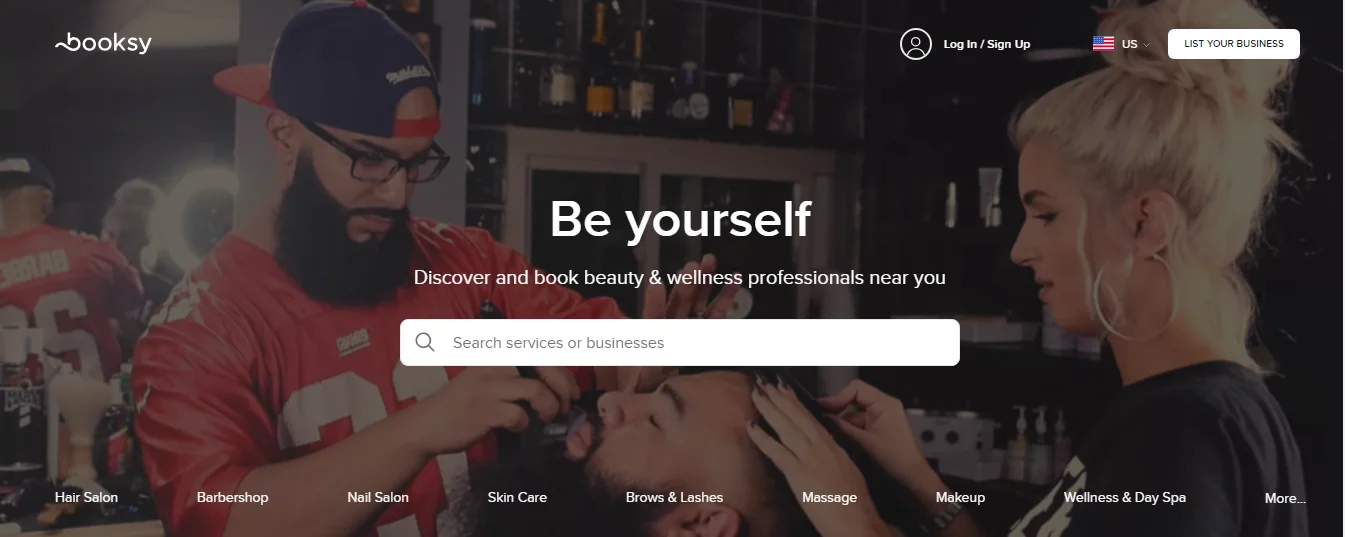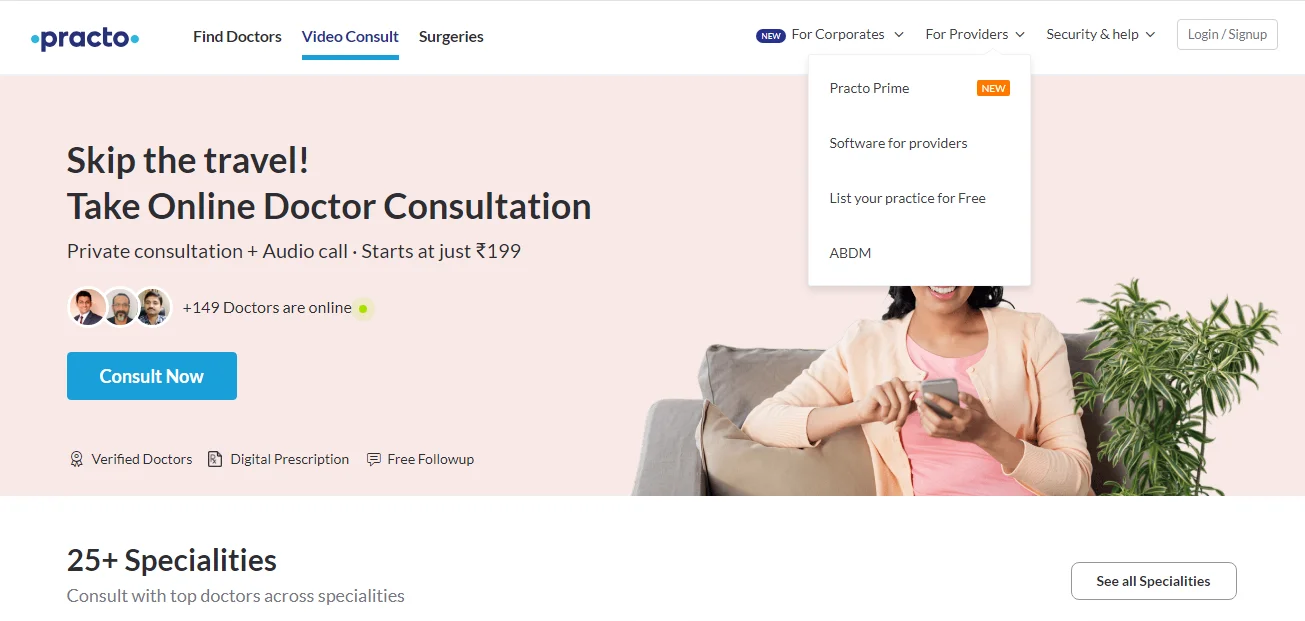Build and Monetize an Online Business Directory: A Detailed Guide

Do you remember the traditional Yellow Pages? A booklet of businesses listed categorically along with their contact details. It was a traditional telephone directory of businesses. However, now Yellow Pages is an online business directory! The task of a business directory is similar to the OG Yellow Pages and contains business information.
In conventional times, the directories have become location specific and niche specific online Websites. Creating a quality online directory that helps business people, service browsers, and gets you income can take some time. Your Website must have some good traffic and you must be offering qualitative suggestions and reviews. Otherwise, you would get lost in the vast arena of Business Directories.
What Does a Business Directory Mean?
To simply state it, it is like an online phone book. A Business Directory provides the users with the most important information regarding businesses like business names, addresses, branches, contact details, services and products, operating hours, off-days, customer reviews, ratings, and so on. There are certain Websites who also provide a feature to add photos, videos, and even book services of a specific business.
Even when you have been living in a specific city for the most part of life, you are not aware of all the local businesses. And there are some businesses for which you rarely need a service and when you need them, such online directories come to aid.

Various Types of Business Directories
Let us look at some of the models of business directories along with their examples. We will also understand how the model can be monetized and how it can be helpful to the mass. This is helpful before going into the nitty-gritty of building a WordPress website.
1) Website Directories linking to Other Websites
This kind of a directory brings together a resource of Websites based on specific niche. For instance, a Website Directory for Online Courses. Herein, the individual course providers can list their courses on your Website. Based on the field, you bifurcate courses and when a user searches for a specific online course, they can see a range of courses and compare them before buying.
- The individual course providers with good content but less online presence can gain an audience with such a directory.
- You support local business people to grow and create a community of similar people.
- You can either monetize the listing of a Website on your Online Directory or provide free listing. If you provide free listing, you can make a pact with the course provider for a commission whenever anyone subscribes to them.
The example was limited to online courses, but you can create a Website for collection of blogs, collection of independently made movies, educational materials. Look at the example of JSTOR that has a lot of research papers and images. There are a lot of papers for which you need to pay a fee for reading. For publishing your research on JSTOR as well, you need to pay certain fees.

2) Job Boards and Review Profiles
This is one of the most common types of Directory wherein the companies choose to post their job listing on famous job search platforms like LinkedIn. LinkedIn is the most popular job listing directory which charges employers to post multiple jobs and receive resumes based on their listing.
There are other job directories as well wherein employees can rate their employers. Other employees can read reviews of a company and understand job culture from real employees. Look at the platform of Glassdoor. It gives free access to information up to a certain extent, further you need to sign up and even join for more details and information.
- A platform to connect employers and employees.
- A platform to share reviews freely without identity leak.
- Charge employers to put their job listings and even charge job seekers to gain detailed insights of the industry.
3) Business Directories
This is the most common type of directory. Herein, you help local businesses to list themselves on your Website and create an online presence. This can be niche specific, industry specific, location centric. Have a look at Zoylee. This business directory is a collection of Beauty Service Providers for Men and Women. It has a list of various locations and is categorised based on various services. It lets you build your cart and even book the services. There are on-site ads as well featuring related products, services, and requirements.
- Herein, small local businesses can have their online presence. There are many who cannot afford building their full-fledged online presence or lack enough knowledge to do so.
- You can charge a listing fee from them. Secondly, there can be some additional charges to promote their listing on top of your Website and user search.
- You can bring in various on-page ads if you get good traffic and charge for such advertisements.

4) Agents and Dealers
To understand this type of business directory, take the example of Airbnb or TripAdvisor. Airbnb is a collection of places you can stay at or experiences you can buy. They get a commission for each booking. Users are so used to checking Airbnb properties wherever they visit. Similarly, TripAdvisor gives suggestions for places to visit and a lot of other options. It is looked at by every traveller to get accustomed to a new location.
- You can be an estate agent and list properties for sale. Get a commission on each sale made.
- Even if you are a dealer in certain industry, for instance, a car dealer, make it possible for individuals to list their old cars. Get a fixed commission on each sale.
5) Member’s-only Listing and Directory
These directories are limited to its members. For instance, you create an online directory for employees of a certain field. Or create a directory of doctors wherein only the members can get online consultations. This becomes a very niche community. This model can work when you create a membership based Website and connect with qualitative people to provide information for members. A Website like Practo brings together hospitals, doctors, and patients for seamless online healthcare services. It works like a directory of doctors and hospitals wherein the charges are taken for registration as well as a commission model can be applied
These types and examples will help you make a blueprint for your online directory thus, guiding you towards the right path. But what do you need for creating a directory? What are the technical tools and skills required to set-up a successful business directory? Let us dive right into it.
Things you need for Creating an Online Directory
For running a full-fledged business Website offering directory service, you need to have certain things set. Let us look at it step-by-step.
Domain and Hosting Plan
- Choose a domain name that reflects your directory’s niche or location and select a reliable hosting provider to ensure your website is accessible and secure. You would also need to look for templates that would suit your plan that can also adapt to your scaling up plans in the future.
Content Management System (CMS):
- Consider using WordPress with directory-specific plug-ins like GeoDirectory, WP Business Directory, or Brilliant Directories for ease of management and customization.
A Defined Niche and Geographical Focus:
- It is crucial to define the scope of your directory. This will help business people and users to interact with your Website well. Decide whether it’s going to be industry-specific (e.g., restaurants, healthcare providers, salon business listings) or geographically targeted (e.g., city, region) to attract relevant businesses and users.
How to Scale Up the Online Business Directory
You must have a plan for scaling up to stand tall among the competitors. Consider the following pointers to stay up-to-date.
- Expansion: Keep adding new listings, categories, and features that can cater to a broader audience and attract more businesses to list on your Website Directory.
- Performance Optimization: Optimising your directory’s performance and enhancing its SEO to be on top of Search Engine Results Page (SERP) will attract more businesses to list themselves and for sure bring in new users.
- Community Building: Foster a community around your directory through user-generated content (UGC), forums, and events to enhance engagement and loyalty. You can invite user blogs related to the service or niche you are catering. For instance, for a business directory listing various home repair service providers, the blogs can be around ‘What to do when your tap continuously leaks?’, ‘home solutions to repair recurring cracks on the wall’, and so on.
- Feedback and Iteration: Gather feedback from users and businesses to identify areas for improvement and keep making necessary changes on your directory’s features and offerings.
Final Business Tips for your Online Directory
Building and managing an online business directory requires careful planning, ongoing optimization, and a commitment to delivering value to both businesses and users. By focusing on user experience, effective SEO strategies, and diversified monetization methods, your directory can become a thriving platform that supports local businesses and provides valuable resources to consumers.
Research some of the online directories and how they position themselves. Look at their offerings and how they charge business people and users. This will guide you in making a wholesome business directory.
FAQs
How do I attract businesses to list on my directory?
Offer incentives such as promotional packages, detailed analytics, and SEO benefits to showcase the value of listing on your directory. Show them the statistics of the business’s progress already listed on your Website and how it would help them gain new clients.
What are some advanced SEO techniques for optimising a business directory?
Implement schema markup for rich snippets, optimise for voice search queries, leverage local citations and backlinks, and regularly update content to improve SEO performance. User generated content will also help future browsers to get genuine ideas about the directory and its listings.
How can I ensure the security of user data in my directory?
Use SSL certificates for secure transactions, implement data encryption protocols, and comply with data protection regulations (e.g., GDPR) to safeguard user information and build trust with users and businesses.







Leave a Reply
You must be logged in to post a comment.